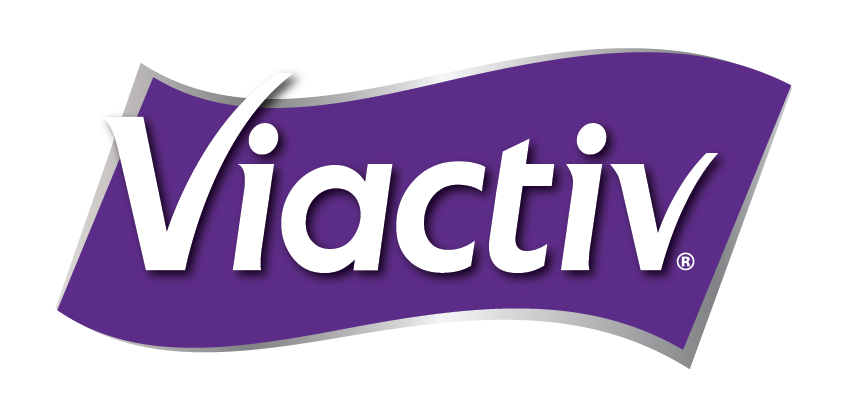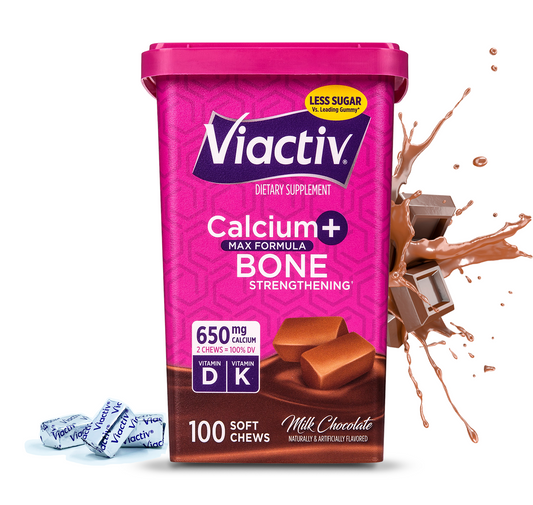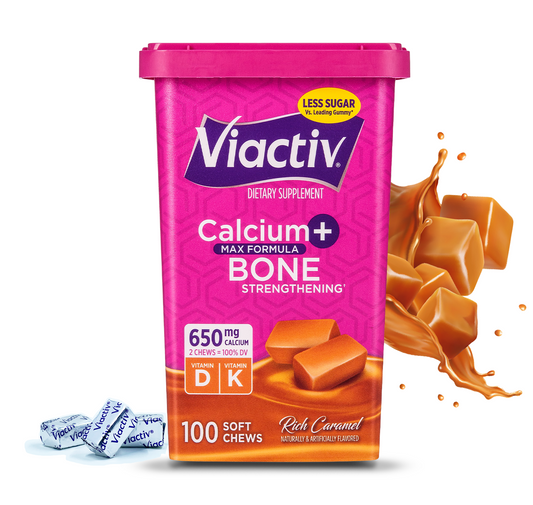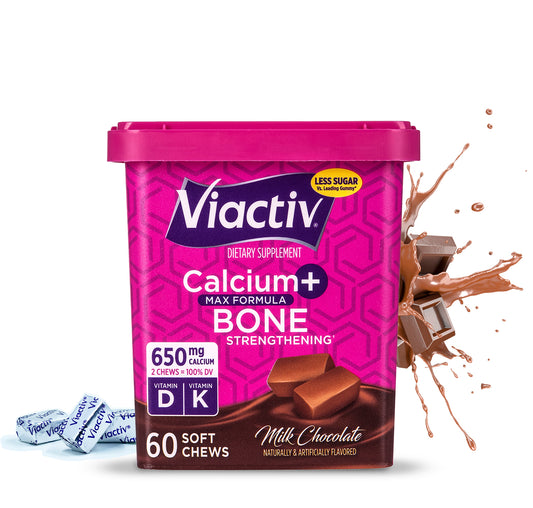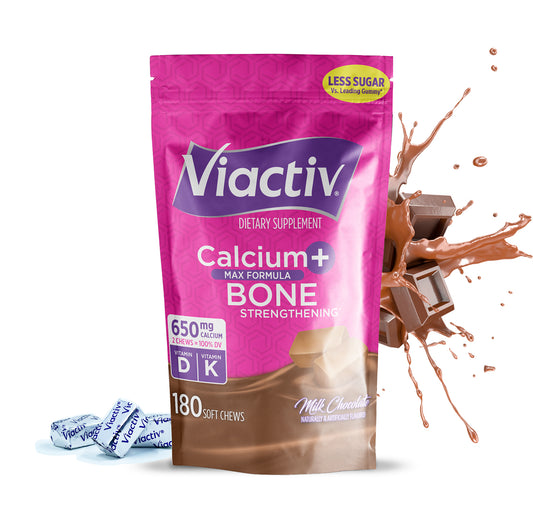Pregnancy Collection
-
Chocolate Calcium Chews
Milk Chocolate -
Chocolate Calcium 60 Chews
Milk Chocolate -
Chocolate Calcium 180 Chews
Milk Chocolate
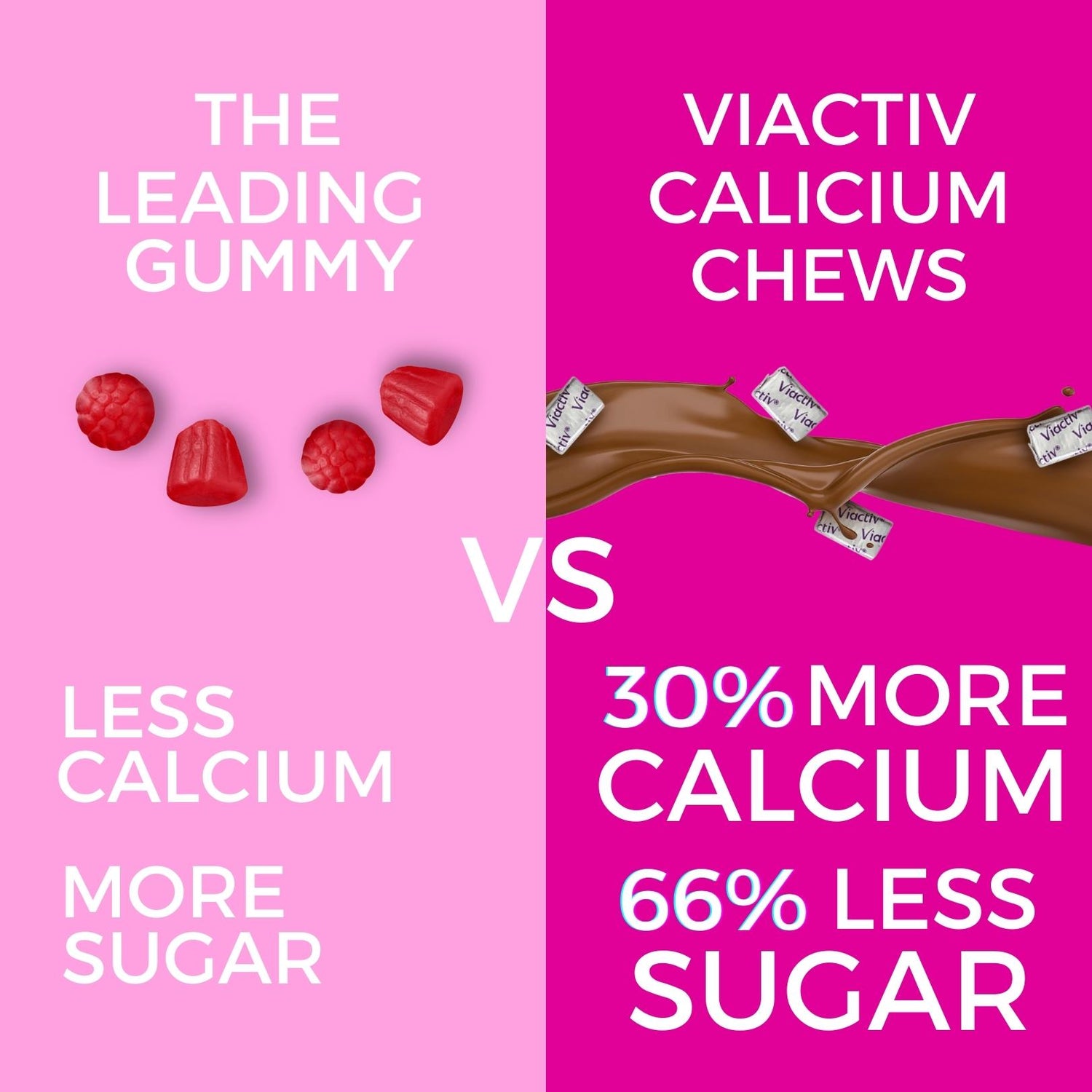
85% of OBGYN’s Recommend Calcium During Pregnancy*
9 out of 10 of these doctors would recommend Viactiv because it has less sugar and calories than calcium gummies.* Viactiv calcium chews have only 1-2 grams of sugar per serving depending on flavor.
*Based on a 2017 Brandperx Survey of 1000 OBGYN practices
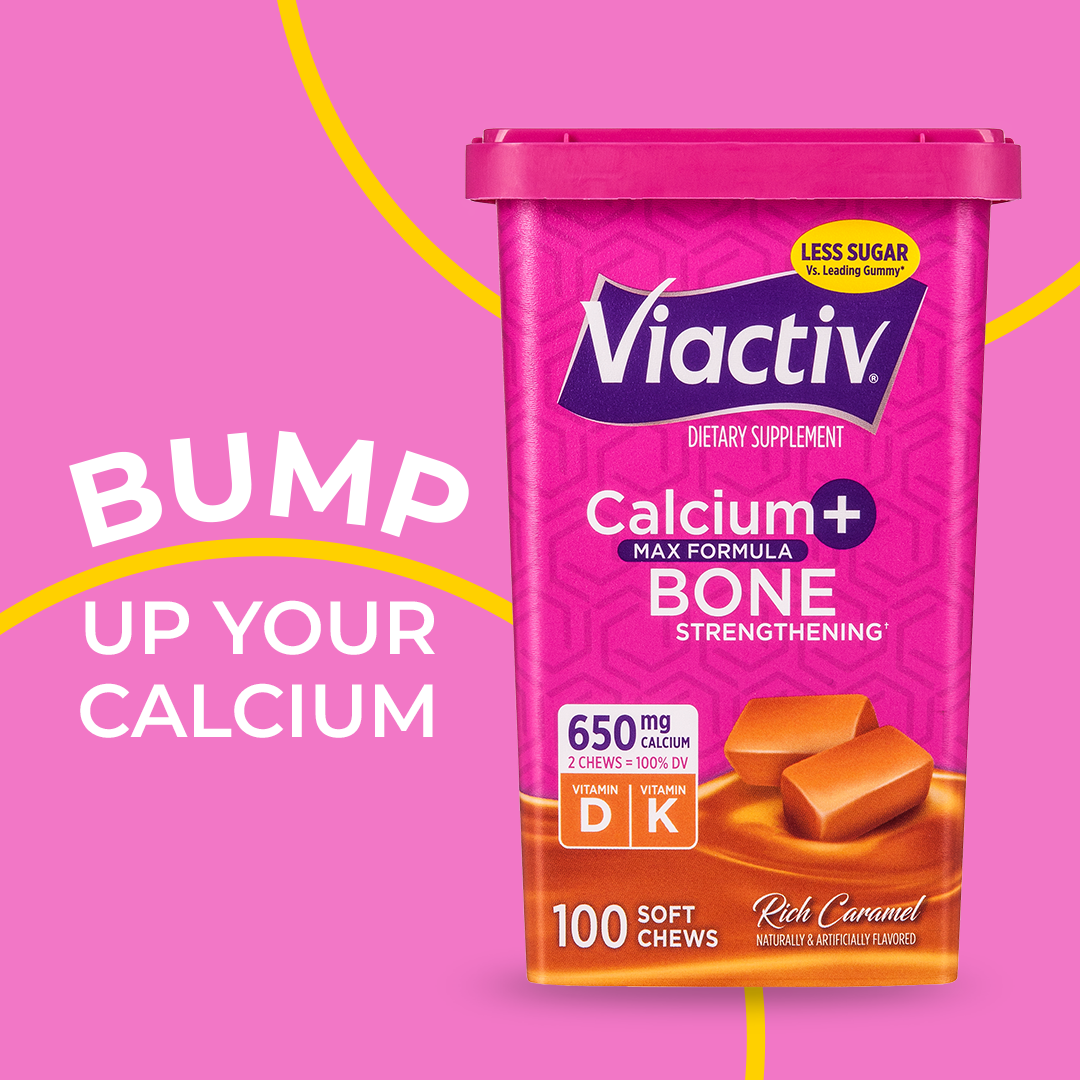
Prenatal Vitamins Are Not an Excellent Source of Calcium
Each Viactiv chew provides 50% of the recommend daily value of calcium. The leading prenatal vitamins have less than 15% of the recommended daily value. Some prenatal gummies don’t have any! If you don’t get enough calcium in your diet during pregnancy, the baby will take it from your bones.
Blog Posts
FAQS
What are prenatal vitamins?
Most nutrients come from the foods you eat, but getting a consistent healthy diet may be challenging; therefore, healthcare providers recommend supplements that contain daily vitamins and minerals to support your body before and during pregnancy.
When should you start taking prenatal vitamins?
As a developing baby depends on mom for all nutritional needs, prenatal vitamins play an important role in providing adequate nutrition throughout the pregnancy. Nutrition goals should begin when planning a pregnancy. If the pregnancy is already confirmed before starting a prenatal vitamin, it may be four to six weeks behind nutritional targets.
Are gummy prenatal vitamins effective?
When choosing a prenatal vitamin, it’s best to consult your healthcare provider. They can review your choices with you and determine which vitamins are needed to best support both you and your baby. It’s important to not only get the correct nutrients, but the correct amounts of nutrients.
Can you take prenatal vitamins without being pregnant?
There are many multivitamins on the market, it is recommended to consult your healthcare provider to determine which one would best support your individual needs.
Can men take prenatal vitamins?
There are many multivitamins on the market, it is recommended to consult your healthcare provider to determine which one would best support your individual needs.
How many prenatal gummies to take a day for pregnancy health?
When choosing a prenatal vitamin, it’s best to consult your healthcare provider. They can review your choices with you and determine which vitamins are needed to best support both you and your baby. It’s important to not only get the correct nutrients, but the correct amounts of nutrients.
How to choose the best calcium supplement for pregnancy?
The World Health Organization (WHO) recommends an intake of 1.5 2.0 grams of elemental calcium per day from 20 weeks’ gestation until the end of pregnancy. While pregnant, supplementing with calcium isn’t just to make sure that the baby is getting proper nutrients for their development, it’s also to make sure that the mother is getting the calcium needed to support all her biological changes. For more information, visit our Guide to Calcium in Pregnancy.
